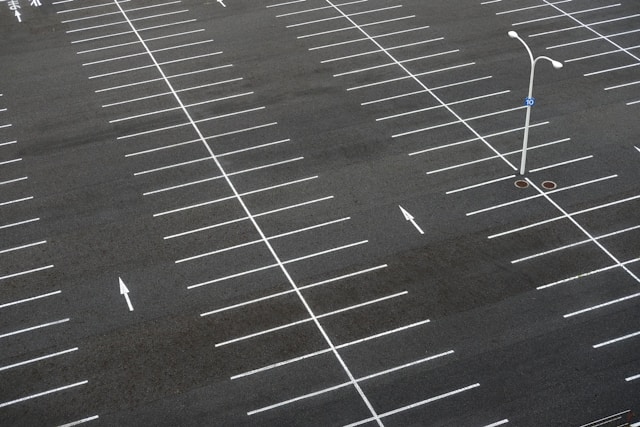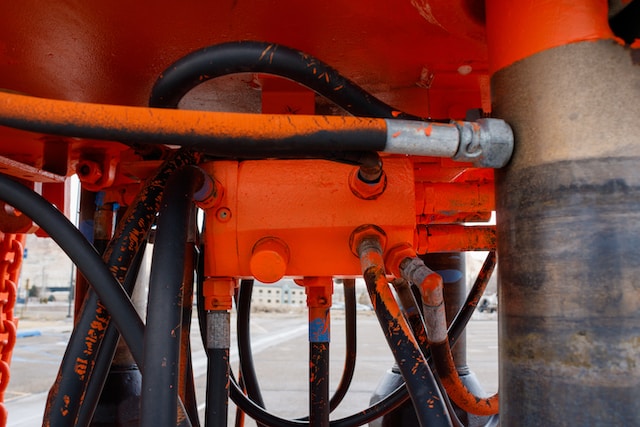A clean parking lot is crucial for your business. Whether you need to attract more customers or keep them away, a poorly maintained lot can be expensive and distracting. Choosing suitable materials can help cut costs for your new parking lot. Asphalt and concrete are both effective options, but they come with some hidden costs and risks that can raise the price of your project.
Cost-Effective
Businesses are often focused on finding cost-effective solutions that don’t compromise quality. Parking lot paving La Porte, IN, is a great way to reduce expenses without sacrificing a safe, well-maintained environment for your customers and employees.
Asphalt paving is typically less expensive than concrete and can save you $4 – $6 per square foot compared to a traditional concrete lot. Tar and chip seal is a popular alternative to asphalt that provides an attractive, gravel-like appearance and can be customized with different types of stones for a unique look. Paving is also faster to install than concrete, meaning you can minimize downtime and disruptions to your business. A professional paving company can also quickly repair any cracks or potholes, saving you money on costly maintenance in the future.
Eco-Friendly
A well-designed parking lot reduces pollution in the local environment. A poorly paved one causes pollutants like brake and oil spills to reach the ground, where they can wash away with rainwater into city sewer systems and eventually reach fresh water supplies. An eco-friendly asphalt pavement has a porous surface that allows stormwater to pass through and be absorbed into the soil, reducing toxic runoff. Adding vegetation and implementing a sustainable drainage system can reduce parking lot pollution. Another way to be eco-friendly is using a seal coat low in volatile organic compounds (VOCs). This type of paint is better for the local air quality than regular asphalt coatings.
Long-Lasting
A paved parking lot will typically last for 25 or 30 years. Its longevity depends on various factors, including repairs, weather conditions, and ongoing maintenance. Asphalt is also safer than other paving options. Its high skid resistance helps drivers and pedestrians gain traction in wet or snowy conditions. Plus, the dark color of asphalt absorbs heat energy from sunlight and helps to melt ice and snow more quickly than other surfaces. Additionally, unlike concrete, asphalt is very quick to construct. This means businesses and customers can continue operating as usual during construction. This is particularly important when the paving project needs to be completed during off-hours or weekends. This minimizes parking lot closures and delays, saving time and money for everyone involved.
Easy to Maintain
Whether you choose asphalt, concrete, or another material for your parking lot, routine maintenance is vital to prolonging the lifespan of any pavement. This prevents cracks from expanding into potholes, which are costly to repair. Unpaved parking lots can be dangerous for drivers, particularly in wet weather. Loose gravel ruts and dust create difficult driving conditions that can result in accidents. In addition to crack filling, patching, and seal coating, preventative maintenance includes installing proper drainage systems during construction. Keeping these systems clear of debris and in working order will help water drain away from the surface instead of pooling on it and damaging the surrounding area. This is also key for protecting the structural integrity of your pavement.
Durable
Parking lots are the workhorses of any business, taking a lot of abuse and traffic. They are prone to potholes, cracking, faded lines, and standing water. This can be a safety hazard for vehicles and cause damage to their suspension, tires, and alignment.
Asphalt is more durable than concrete and withstands freezing and thawing, shifting soil, and road salt better. It also has a rubbery texture that grips the tire well and reduces the risk of accidents from skidding in wet conditions. If you’re looking for a paving option that is just as durable but less expensive, more environmentally friendly, and requires no maintenance, look no further than permeable pavers that allow rainwater to flow directly through them and into the ground. This helps reduce impervious surface area and reduces the need for drainage systems.





